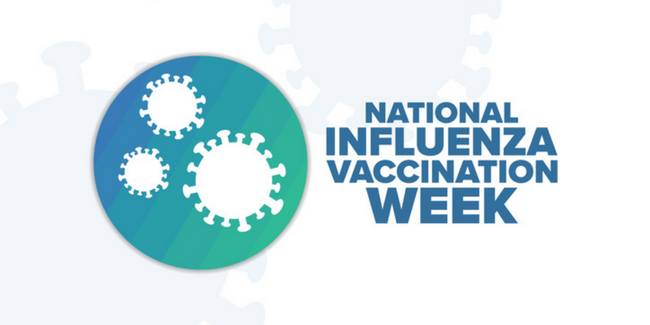Protect Yourself During This National Influenza Vaccination Week

When was the last time you had the flu? For many Americans, the answer to this question may be a head scratch or a shoulder shrug. You may not remember the last time you were sick with the flu virus because it has been in relative hiding recently. The protective measures that have been in place against COVID-19 over the past two winters have kept the flu (or influenza) virus at bay, with very low infection counts. However, this fall, as the COVID-19 pandemic has been declared to be over, social distancing, mask-wearing, and reduced social gatherings have largely been cast aside, allowing an opening for the flu virus to regain its foothold among the general population. In fact, according to data published by the US Centers for Disease Control and Prevention (CDC), cases of the flu are currently at their highest point in the past 13 years for this point in the season, and influenza activity in the United States only continues to increase.
Fortunately, even as the flu virus and other respiratory viruses gain traction after prolonged dormancy, there is a powerful tool that you have to protect yourself in the form of the flu shot or flu vaccine. In honor of National Influenza Vaccination Week, which is taking place from December 5–9 this year, here’s what you need to know about protecting yourself against the flu and how vaccine research is crucial in this mission.
What Is the Flu Shot?
The flu shot is an anti-viral vaccine that is custom-made each season. Flu shots help control the levels of infection within the population during a given flu season—and, on an individual level, they can help prevent you from getting very sick from the flu. Scientists continuously track the evolution of influenza virus strains as they surge in the northern hemisphere, then the southern hemisphere, and then back again, and they use this data to create a formula that they predict will offer the best protection against influenza infection.
This year, all of the flu vaccines that are available in the United States contain protection against four dominant strains of the flu virus. The CDC recommends that every person ages six months and older, with some exceptions, receive a flu shot this year. The CDC is also recommending that people older than age 65 receive a high-dose formulation of the flu vaccine, so they have the greatest amount of protection.
Why Is Important to Get the Flu Shot?
Put simply, the flu shot can help prevent you from getting very ill with the flu. In some cases, it may even prevent you from getting the flu in the first place. While people with healthy immune systems may not fear a flu infection, flu can cause serious complications for many others, including young children, the elderly, and people with certain chronic health conditions like asthma, diabetes, and heart disease. Unfortunately, in an average flu season, hundreds of thousands of people are hospitalized due to influenza infections, and tens of thousands of people will die. Getting a flu shot protects you from not only the flu but also those in society who are the most vulnerable—much in the same way that a COVID-19 shot benefits the community at large as well as the individual.
When Should You Get a Flu Shot?
Experts recommend getting a flu shot in September or October each year so that your immune system has time to prepare its defenses before the virus becomes highly prevalent in the environment. However, it’s not too late. If you haven’t yet gotten a flu shot, the sooner you can do it, the better. There’s still time to protect yourself against the flu with a flu shot, especially since flu season may span several months into 2023.
The Importance of Vaccine Research
The influenza virus is constantly in motion, and staying on top of flu protection is a highly dynamic science. Scientists are constantly searching for more precise ways to defend against the flu, and clinical research trials investigating the safety and efficacy of prophylactics are a crucial component of this mission.
To learn more about the vaccine research being done at M3 Wake Research, contact us today.


